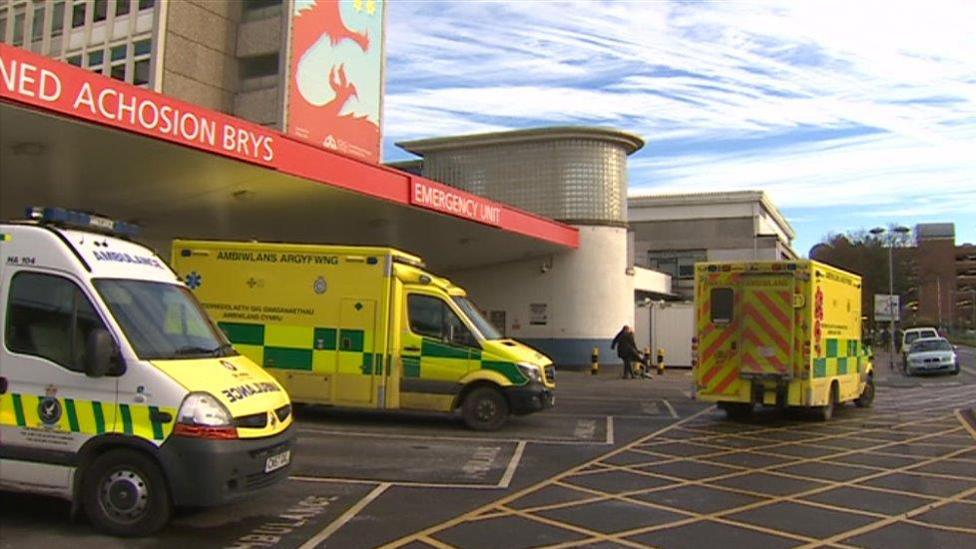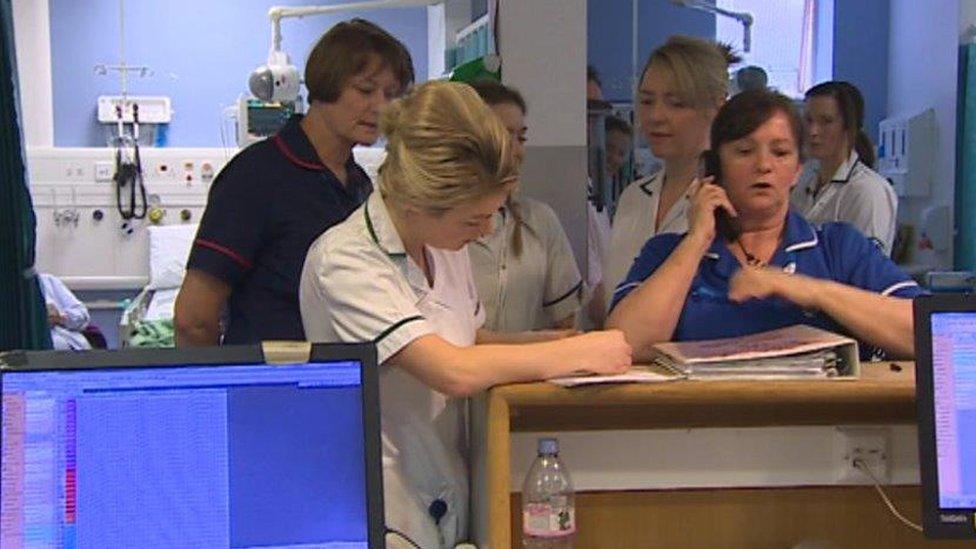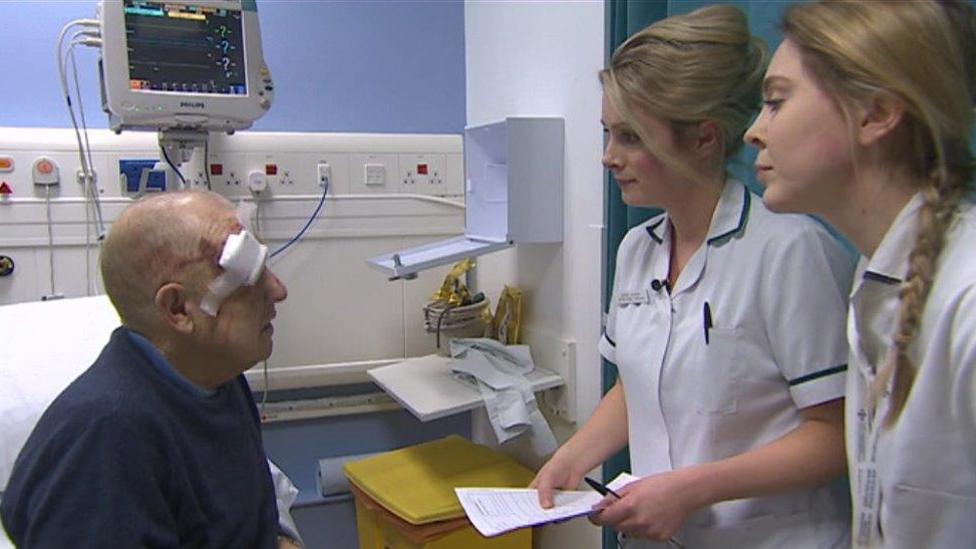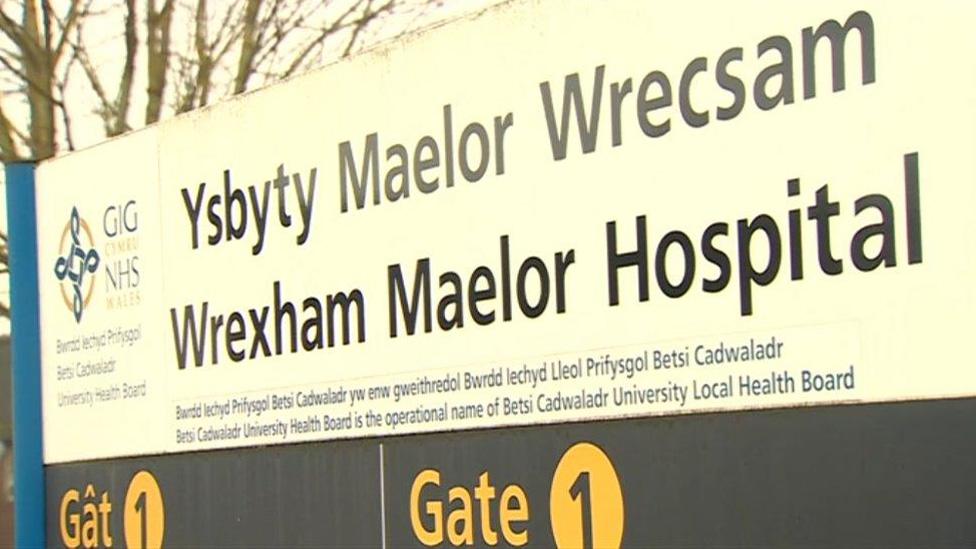NHS Wales: Rise in people waiting more than 12 hours in A&E
- Published
- comments

The number of patients waiting more than 12 hours in hospital emergency departments is four times what it was five years ago, new figures show.
Nearly 28,000 patients in Wales faced the longest waits in the first six months of 2019.
The target is that no patient should wait more than 12 hours to be treated, transferred or discharged.
The health minister said 12 hour waits fell last month but he expects health boards to deliver better performance.

Figures published by Statistics Wales and the NHS Wales Informatics Services show a steady rise in patients over the last five years waiting more than 12 hours in A&E.
The half-yearly figure for 2019 shows 27,734 patients waited at least 12 hours.
This is four times the number for the same period five years ago.
Last month, more than 4,000 patients had long waits - 3.1% of patients - with the highest numbers at Morriston in Swansea (616), Glan Clwyd (609) and Wrexham Maelor hospital (526 patients).

Meanwhile, Wrexham - consistently the worst performer for the four hour target to be treated, transferred or discharged - showed a slight worsening over the month. Overall in Wales, the picture is steady but worse than June 2018.
Dr Jo Mower, vice president of the Royal College of Emergency Medicine in Wales, said: "Today's data shows that poor performance is a year-round reality in Wales."
Health Minister Vaughan Gething said the total number of patients attending A&E had passed 520,000 at the year's halfway point.
"I am still concerned about the timeliness at a small number of sites but we are working with them to improve performance," he added.
"Fewer patients waited longer than 12 hours in emergency departments for admission to a hospital bed when compared with May, and delayed transfers of care are down 3% on the same period last year - the second lowest June total on record.
"However, I expect health boards to work with local authorities to deliver better performance in both these areas."
The Welsh Government said an extra £50m given to help reduce the longest waiting times for elective operations was starting to have an impact.
Latest figures show a 19% reduction in waits over 36 weeks compared with the same period last year.
Meanwhile, Mr Gething said he has written to the UK government calling for urgent action to resolve concerns of medical staff over pension and tax implications that are leading to some not undertaking additional hours.
This has already led to problems for NHS England with consultants receiving unexpected tax bills after pension rule changes.
"This could have a serious impact on our efforts to improve waiting times and access to services in Wales," said Mr Gething.
- Published1 July 2019

- Published20 June 2019

- Published21 February 2019

- Published20 September 2018
